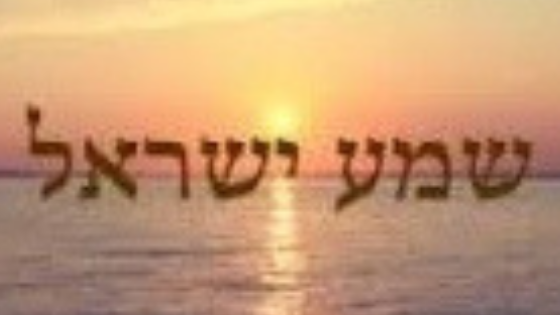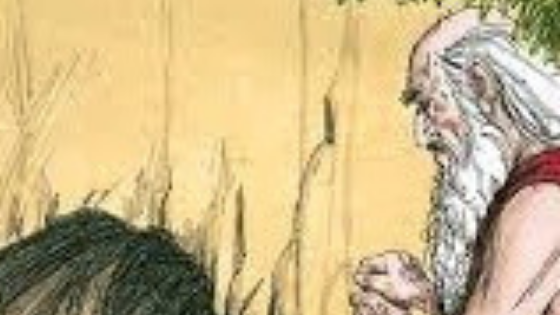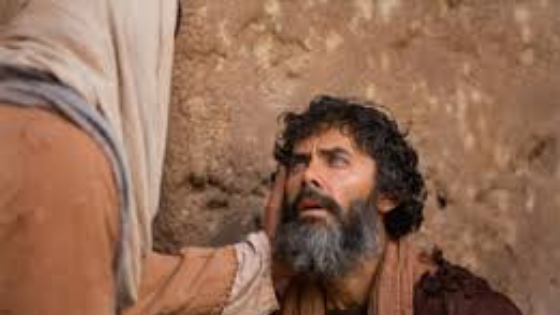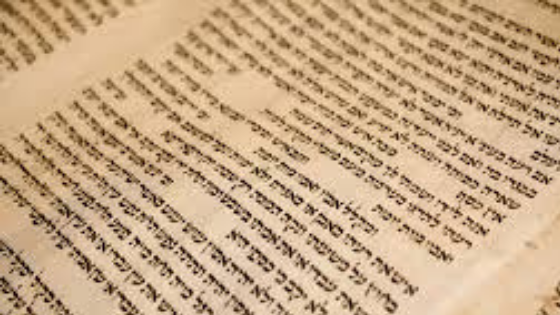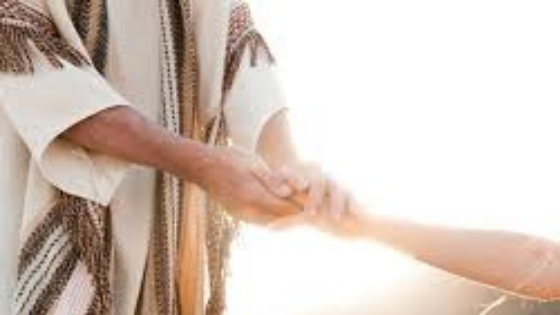@import url(https://www.ratisbonne.org.il/bk/wp-content/plugins/siteorigin-panels/css/front-flex.min.css); #pgc-4379-0-0 , #pgc-4379-0-2 { width:10%;width:calc(10% – ( 0.9 * 30px ) ) } #pgc-4379-0-1 { width:80%;width:calc(80% – ( 0.2 * 30px ) ) } #pl-4379 #panel-4379-0-1-0 { } #pl-4379 .so-panel { margin-bottom:30px } #pl-4379 .so-panel:last-child { margin-bottom:0px } #pg-4379-0.panel-no-style, #pg-4379-0.panel-has-style > .panel-row-style { -webkit-align-items:flex-start;align-items:flex-start } @media (max-width:780px){ #pg-4379-0.panel-no-style, #pg-4379-0.panel-has-style > .panel-row-style { -webkit-flex-direction:column;-ms-flex-direction:column;flex-direction:column } #pg-4379-0 .panel-grid-cell { margin-right:0 } #pg-4379-0 .panel-grid-cell { width:100% } #pgc-4379-0-0 , #pgc-4379-0-1 { margin-bottom:30px } #pl-4379 .panel-grid-cell { padding:0 } #pl-4379 .panel-grid .panel-grid-cell-empty { display:none } #pl-4379 .panel-grid .panel-grid-cell-mobile-last { margin-bottom:0px } }
Parashat Chayai Sarah
@import url(https://www.ratisbonne.org.il/bk/wp-content/plugins/siteorigin-panels/css/front-flex.min.css); #pgc-4370-0-0 , #pgc-4370-0-2 { width:10%;width:calc(10% – ( 0.9 * 30px ) ) } #pgc-4370-0-1 { width:80%;width:calc(80% – ( 0.2 * 30px ) ) } #pl-4370 #panel-4370-0-1-0 { } #pl-4370 .so-panel { margin-bottom:30px } #pl-4370 .so-panel:last-child { margin-bottom:0px } #pg-4370-0.panel-no-style, #pg-4370-0.panel-has-style > .panel-row-style { -webkit-align-items:flex-start;align-items:flex-start } @media (max-width:780px){ #pg-4370-0.panel-no-style, #pg-4370-0.panel-has-style > .panel-row-style { -webkit-flex-direction:column;-ms-flex-direction:column;flex-direction:column } #pg-4370-0 .panel-grid-cell { margin-right:0 } #pg-4370-0 .panel-grid-cell { width:100% } #pgc-4370-0-0 , #pgc-4370-0-1 { margin-bottom:30px } #pl-4370 .panel-grid-cell { padding:0 } #pl-4370 .panel-grid .panel-grid-cell-empty { display:none } #pl-4370 .panel-grid .panel-grid-cell-mobile-last { margin-bottom:0px } }
The 30th Sunday in Ordinary Time
@import url(https://www.ratisbonne.org.il/bk/wp-content/plugins/siteorigin-panels/css/front-flex.min.css); #pgc-4352-0-0 , #pgc-4352-0-2 { width:10%;width:calc(10% – ( 0.9 * 30px ) ) } #pgc-4352-0-1 { width:80%;width:calc(80% – ( 0.2 * 30px ) ) } #pl-4352 #panel-4352-0-1-0 { } #pl-4352 .so-panel { margin-bottom:30px } #pl-4352 .so-panel:last-child { margin-bottom:0px } #pg-4352-0.panel-no-style, #pg-4352-0.panel-has-style > .panel-row-style { -webkit-align-items:flex-start;align-items:flex-start } @media (max-width:780px){ #pg-4352-0.panel-no-style, #pg-4352-0.panel-has-style > .panel-row-style { -webkit-flex-direction:column;-ms-flex-direction:column;flex-direction:column } #pg-4352-0 .panel-grid-cell { margin-right:0 } #pg-4352-0 .panel-grid-cell { width:100% } #pgc-4352-0-0 , #pgc-4352-0-1 { margin-bottom:30px } #pl-4352 .panel-grid-cell { padding:0 } #pl-4352 .panel-grid .panel-grid-cell-empty { display:none } #pl-4352 .panel-grid .panel-grid-cell-mobile-last { margin-bottom:0px } }
Parashat Vayeira
@import url(https://www.ratisbonne.org.il/bk/wp-content/plugins/siteorigin-panels/css/front-flex.min.css); #pgc-4347-0-0 , #pgc-4347-0-2 { width:10%;width:calc(10% – ( 0.9 * 30px ) ) } #pgc-4347-0-1 { width:80%;width:calc(80% – ( 0.2 * 30px ) ) } #pl-4347 #panel-4347-0-1-0 { } #pl-4347 .so-panel { margin-bottom:30px } #pl-4347 .so-panel:last-child { margin-bottom:0px } #pg-4347-0.panel-no-style, #pg-4347-0.panel-has-style > .panel-row-style { -webkit-align-items:flex-start;align-items:flex-start } @media (max-width:780px){ #pg-4347-0.panel-no-style, #pg-4347-0.panel-has-style > .panel-row-style { -webkit-flex-direction:column;-ms-flex-direction:column;flex-direction:column } #pg-4347-0 .panel-grid-cell { margin-right:0 } #pg-4347-0 .panel-grid-cell { width:100% } #pgc-4347-0-0 , #pgc-4347-0-1 { margin-bottom:30px } #pl-4347 .panel-grid-cell { padding:0 } #pl-4347 .panel-grid .panel-grid-cell-empty { display:none } #pl-4347 .panel-grid .panel-grid-cell-mobile-last { margin-bottom:0px } }
REFLECTIONS ON THE READINGS FOR THE 29th SUNDAY OF THE YEAR
@import url(https://www.ratisbonne.org.il/bk/wp-content/plugins/siteorigin-panels/css/front-flex.min.css); #pgc-4317-0-0 , #pgc-4317-0-2 { width:10%;width:calc(10% – ( 0.9 * 30px ) ) } #pgc-4317-0-1 { width:80%;width:calc(80% – ( 0.2 * 30px ) ) } #pl-4317 #panel-4317-0-1-0 { } #pl-4317 .so-panel { margin-bottom:30px } #pl-4317 .so-panel:last-child { margin-bottom:0px } #pg-4317-0.panel-no-style, #pg-4317-0.panel-has-style > .panel-row-style { -webkit-align-items:flex-start;align-items:flex-start } @media (max-width:780px){ #pg-4317-0.panel-no-style, #pg-4317-0.panel-has-style > .panel-row-style { -webkit-flex-direction:column;-ms-flex-direction:column;flex-direction:column } #pg-4317-0 .panel-grid-cell { margin-right:0 } #pg-4317-0 .panel-grid-cell { width:100% } #pgc-4317-0-0 , #pgc-4317-0-1 { margin-bottom:30px } #pl-4317 .panel-grid-cell { padding:0 } #pl-4317 .panel-grid .panel-grid-cell-empty { display:none } #pl-4317 .panel-grid .panel-grid-cell-mobile-last { margin-bottom:0px } }
Parashat Lech Lecha
@import url(https://www.ratisbonne.org.il/bk/wp-content/plugins/siteorigin-panels/css/front-flex.min.css); #pgc-4306-0-0 , #pgc-4306-0-2 { width:10%;width:calc(10% – ( 0.9 * 30px ) ) } #pgc-4306-0-1 { width:80%;width:calc(80% – ( 0.2 * 30px ) ) } #pl-4306 #panel-4306-0-1-0 { } #pl-4306 .so-panel { margin-bottom:30px } #pl-4306 .so-panel:last-child { margin-bottom:0px } #pg-4306-0.panel-no-style, #pg-4306-0.panel-has-style > .panel-row-style { -webkit-align-items:flex-start;align-items:flex-start } @media (max-width:780px){ #pg-4306-0.panel-no-style, #pg-4306-0.panel-has-style > .panel-row-style { -webkit-flex-direction:column;-ms-flex-direction:column;flex-direction:column } #pg-4306-0 .panel-grid-cell { margin-right:0 } #pg-4306-0 .panel-grid-cell { width:100% } #pgc-4306-0-0 , #pgc-4306-0-1 { margin-bottom:30px } #pl-4306 .panel-grid-cell { padding:0 } #pl-4306 .panel-grid .panel-grid-cell-empty { display:none } #pl-4306 .panel-grid .panel-grid-cell-mobile-last { margin-bottom:0px } }
The 28th Sunday of Ordinary Time
@import url(https://www.ratisbonne.org.il/bk/wp-content/plugins/siteorigin-panels/css/front-flex.min.css); #pgc-4291-0-0 , #pgc-4291-0-2 { width:10%;width:calc(10% – ( 0.9 * 30px ) ) } #pgc-4291-0-1 { width:80%;width:calc(80% – ( 0.2 * 30px ) ) } #pl-4291 #panel-4291-0-1-0 { } #pl-4291 .so-panel { margin-bottom:30px } #pl-4291 .so-panel:last-child { margin-bottom:0px } #pg-4291-0.panel-no-style, #pg-4291-0.panel-has-style > .panel-row-style { -webkit-align-items:flex-start;align-items:flex-start } @media (max-width:780px){ #pg-4291-0.panel-no-style, #pg-4291-0.panel-has-style > .panel-row-style { -webkit-flex-direction:column;-ms-flex-direction:column;flex-direction:column } #pg-4291-0 .panel-grid-cell { margin-right:0 } #pg-4291-0 .panel-grid-cell { width:100% } #pgc-4291-0-0 , #pgc-4291-0-1 { margin-bottom:30px } #pl-4291 .panel-grid-cell { padding:0 } #pl-4291 .panel-grid .panel-grid-cell-empty { display:none } #pl-4291 .panel-grid .panel-grid-cell-mobile-last { margin-bottom:0px } }
Parashat Noach
@import url(https://www.ratisbonne.org.il/bk/wp-content/plugins/siteorigin-panels/css/front-flex.min.css); #pgc-4280-0-0 , #pgc-4280-0-2 { width:10%;width:calc(10% – ( 0.9 * 30px ) ) } #pgc-4280-0-1 { width:80%;width:calc(80% – ( 0.2 * 30px ) ) } #pl-4280 #panel-4280-0-1-0 { } #pl-4280 .so-panel { margin-bottom:30px } #pl-4280 .so-panel:last-child { margin-bottom:0px } #pg-4280-0.panel-no-style, #pg-4280-0.panel-has-style > .panel-row-style { -webkit-align-items:flex-start;align-items:flex-start } @media (max-width:780px){ #pg-4280-0.panel-no-style, #pg-4280-0.panel-has-style > .panel-row-style { -webkit-flex-direction:column;-ms-flex-direction:column;flex-direction:column } #pg-4280-0 .panel-grid-cell { margin-right:0 } #pg-4280-0 .panel-grid-cell { width:100% } #pgc-4280-0-0 , #pgc-4280-0-1 { margin-bottom:30px } #pl-4280 .panel-grid-cell { padding:0 } #pl-4280 .panel-grid .panel-grid-cell-empty { display:none } #pl-4280 .panel-grid .panel-grid-cell-mobile-last { margin-bottom:0px } }
The 27th Sunday of Ordinary Time
@import url(https://www.ratisbonne.org.il/bk/wp-content/plugins/siteorigin-panels/css/front-flex.min.css); #pgc-4261-0-0 , #pgc-4261-0-2 { width:10%;width:calc(10% – ( 0.9 * 30px ) ) } #pgc-4261-0-1 { width:80%;width:calc(80% – ( 0.2 * 30px ) ) } #pl-4261 #panel-4261-0-1-0 { } #pl-4261 .so-panel { margin-bottom:30px } #pl-4261 .so-panel:last-child { margin-bottom:0px } #pg-4261-0.panel-no-style, #pg-4261-0.panel-has-style > .panel-row-style { -webkit-align-items:flex-start;align-items:flex-start } @media (max-width:780px){ #pg-4261-0.panel-no-style, #pg-4261-0.panel-has-style > .panel-row-style { -webkit-flex-direction:column;-ms-flex-direction:column;flex-direction:column } #pg-4261-0 .panel-grid-cell { margin-right:0 } #pg-4261-0 .panel-grid-cell { width:100% } #pgc-4261-0-0 , #pgc-4261-0-1 { margin-bottom:30px } #pl-4261 .panel-grid-cell { padding:0 } #pl-4261 .panel-grid .panel-grid-cell-empty { display:none } #pl-4261 .panel-grid .panel-grid-cell-mobile-last { margin-bottom:0px } }
Parashat Bereishit
@import url(https://www.ratisbonne.org.il/bk/wp-content/plugins/siteorigin-panels/css/front-flex.min.css); #pgc-4254-0-0 , #pgc-4254-0-2 { width:10%;width:calc(10% – ( 0.9 * 30px ) ) } #pgc-4254-0-1 { width:80%;width:calc(80% – ( 0.2 * 30px ) ) } #pl-4254 #panel-4254-0-1-0 { } #pl-4254 .so-panel { margin-bottom:30px } #pl-4254 .so-panel:last-child { margin-bottom:0px } #pg-4254-0.panel-no-style, #pg-4254-0.panel-has-style > .panel-row-style { -webkit-align-items:flex-start;align-items:flex-start } @media (max-width:780px){ #pg-4254-0.panel-no-style, #pg-4254-0.panel-has-style > .panel-row-style { -webkit-flex-direction:column;-ms-flex-direction:column;flex-direction:column } #pg-4254-0 .panel-grid-cell { margin-right:0 } #pg-4254-0 .panel-grid-cell { width:100% } #pgc-4254-0-0 , #pgc-4254-0-1 { margin-bottom:30px } #pl-4254 .panel-grid-cell { padding:0 } #pl-4254 .panel-grid .panel-grid-cell-empty { display:none } #pl-4254 .panel-grid .panel-grid-cell-mobile-last { margin-bottom:0px } }
